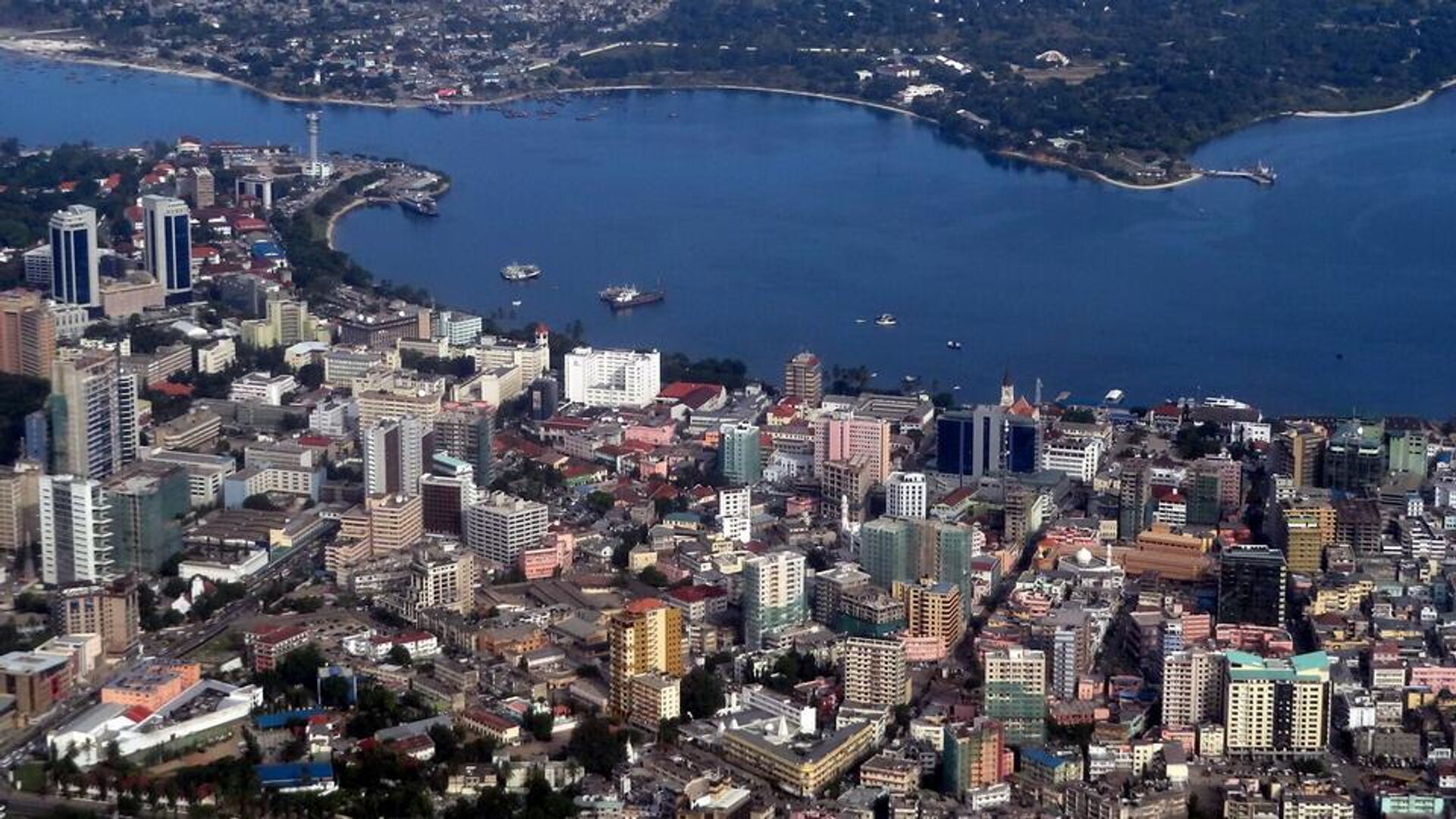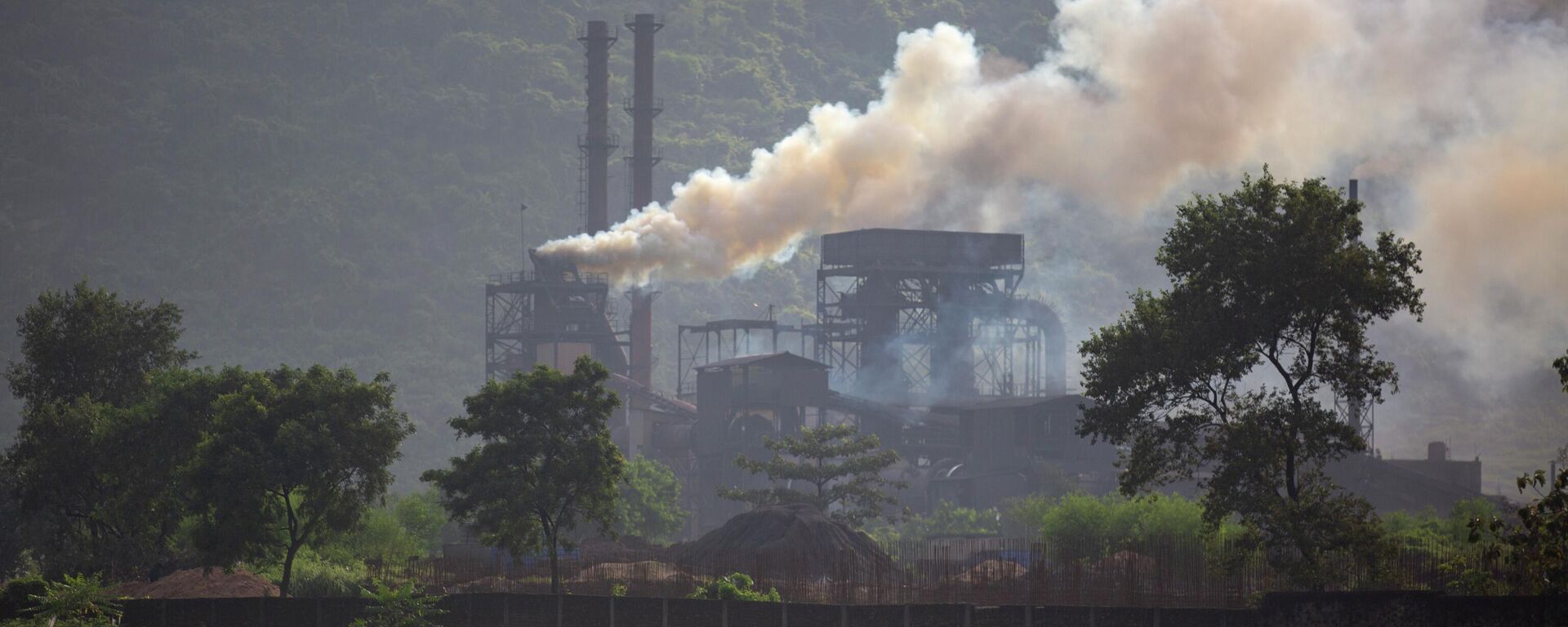https://en.sputniknews.africa/20240207/tanzania-to-generate-1-billion-through-carbon-trading-projects-1064968220.html
Tanzania to Generate $1 Billion Through Carbon Trading Projects
Tanzania to Generate $1 Billion Through Carbon Trading Projects
Sputnik Africa
A carbon credit is a token that represents reduction of a particular amount of carbon dioxide emissions and is generated by entities engaged in policies to... 07.02.2024, Sputnik Africa
2024-02-07T18:01+0100
2024-02-07T18:01+0100
2024-02-07T18:01+0100
sub-saharan africa
tanzania
economy
east africa
pollution
carbon credits
carbon
nature
climate change
https://cdn1.img.sputniknews.africa/img/07e7/06/04/1059713443_0:0:960:540_1920x0_80_0_0_6babe14ff1800a7bdd7af0ed3c32cd13.jpg
Tanzania aims to generate $1 billion through carbon trading projects, the minister of State in the Vice President’s Office responsible for Union and Environment, Selemani Jafo, said, according to the local media.By the end of December 2023, 35 applications for carbon trade projects had been submitted to the government, the minister reportedly said.The registration of the initiatives is not yet completed, though.Jafo continued, reportedly saying that between 2018 and 2022, carbon trade initiatives carried out by various local councils brought in Sh32 billion (around $12.6 million) for the government.Moreover, the government has already convened meetings with the regional and district commissioners and involved the media as part of its broader effort to raise public awareness about the expanding carbon trade, the minister concluded.Carbon trade payments are given once forestry protection carbon credits are sold to the voluntary carbon market.The expertise and help of an investor who contracts with village governments to protect forest reserves generates high-quality certified carbon credits.The deal requires local communities to protect their woodlands together with the company. Communities help prevent global climate change by stopping deforestation.Forest cutting contributes to the increase of carbon dioxide levels, while preventative methods reduce emissions using carbon credits. Communities have access to the global financial system when the company sells credits on the voluntary carbon market. The UN Framework Convention on Climate Change, established in 1992 to address climate change challenges, issues and regulates carbon credits worldwide.More countries are setting up framework to issue and trade carbon credits.In 2022, Tanzania introduced the National Carbon Trading Guidelines to govern international, regional, and national carbon trading stakeholders.With greater seasonal variation in rainfall and temperature, drought, and floods, climate change is harming socio-economic and development sectors, and carbon trading is one of the emission-reduction mitigating strategies.Last December, Tanzania agreed to a 1.8 million-hectare land-based carbon credit scheme covering six national parks. It’s noteworthy that the East African country is one of the top African carbon credit traders due to its almost 48 million hectares of forest.
https://en.sputniknews.africa/20230818/zimbabwe-to-receive-30-of-income-from-carbon-credits-sale-1061433084.html
tanzania
east africa
Sputnik Africa
feedback@sputniknews.com
+74956456601
MIA „Rossiya Segodnya“
2024
Christina Glazkova
https://cdn1.img.sputniknews.africa/img/07e7/0b/07/1063380906_0:0:673:674_100x100_80_0_0_79628b4d0cd9f29291a57aa13bbf9e7a.jpg
Christina Glazkova
https://cdn1.img.sputniknews.africa/img/07e7/0b/07/1063380906_0:0:673:674_100x100_80_0_0_79628b4d0cd9f29291a57aa13bbf9e7a.jpg
News
en_EN
Sputnik Africa
feedback@sputniknews.com
+74956456601
MIA „Rossiya Segodnya“
Sputnik Africa
feedback@sputniknews.com
+74956456601
MIA „Rossiya Segodnya“
Christina Glazkova
https://cdn1.img.sputniknews.africa/img/07e7/0b/07/1063380906_0:0:673:674_100x100_80_0_0_79628b4d0cd9f29291a57aa13bbf9e7a.jpg
tanzania, economy, east africa, pollution, carbon credits, carbon, nature, climate change
tanzania, economy, east africa, pollution, carbon credits, carbon, nature, climate change
Tanzania to Generate $1 Billion Through Carbon Trading Projects
Christina Glazkova
Writer / Editor
A carbon credit is a token that represents reduction of a particular amount of carbon dioxide emissions and is generated by entities engaged in policies to decrease greenhouse gas emissions and tackle the global warming.
Tanzania aims to generate $1 billion through carbon trading projects, the minister of State in the Vice President’s Office responsible for Union and Environment, Selemani Jafo, said, according to the local media.
By the end of December 2023, 35 applications for carbon trade projects had been submitted to the government, the minister reportedly said.
The registration of the initiatives is not yet completed, though.
"Carbon trade is so thriving in Tanzania that it will significantly contribute to the economy soon," said Jafo, as cited by the outlet.
Jafo continued, reportedly saying that between 2018 and 2022, carbon trade initiatives carried out by various local councils brought in Sh32 billion (around $12.6 million) for the government.
Moreover, the government has already convened meetings with the regional and district commissioners and involved the media as part of its broader effort to raise public awareness about the expanding carbon trade, the minister concluded.
"During COP28 in Dubai, we also marketed our country for carbon trading among the companies involved in the trade. The positive response we see today is the outcome of such global engagements," Jafo revealed, adding that carbon trading is a lucrative possibility for Tanzania to increase its earnings.
Carbon trade payments are given once forestry protection carbon credits are sold to the voluntary carbon market.
The expertise and help of an investor who contracts with village governments to
protect forest reserves generates high-quality certified carbon credits.
The deal requires local communities to protect their woodlands together with the company. Communities help prevent global
climate change by stopping deforestation.
Forest cutting contributes to the increase of carbon dioxide levels, while preventative methods reduce emissions using carbon credits. Communities have access to the global financial system when the company sells credits on the voluntary carbon market. The UN Framework Convention on Climate Change, established in 1992 to address climate change challenges, issues and regulates carbon credits worldwide.
More countries are setting up framework to issue and trade
carbon credits.
In 2022, Tanzania introduced the National Carbon Trading Guidelines to govern international, regional, and national carbon trading stakeholders.
With greater seasonal variation in rainfall and temperature, drought, and floods, climate change is harming socio-economic and development sectors, and carbon trading is one of the emission-reduction mitigating strategies.
Last December, Tanzania agreed to a 1.8 million-hectare land-based carbon credit scheme covering six national parks. It’s noteworthy that the East African country is one of the top African carbon credit traders due to its almost 48 million hectares of forest.



